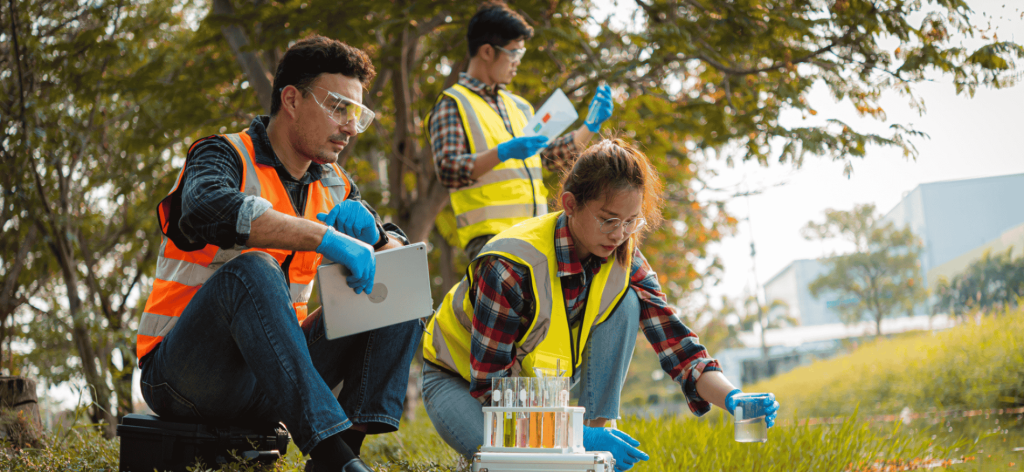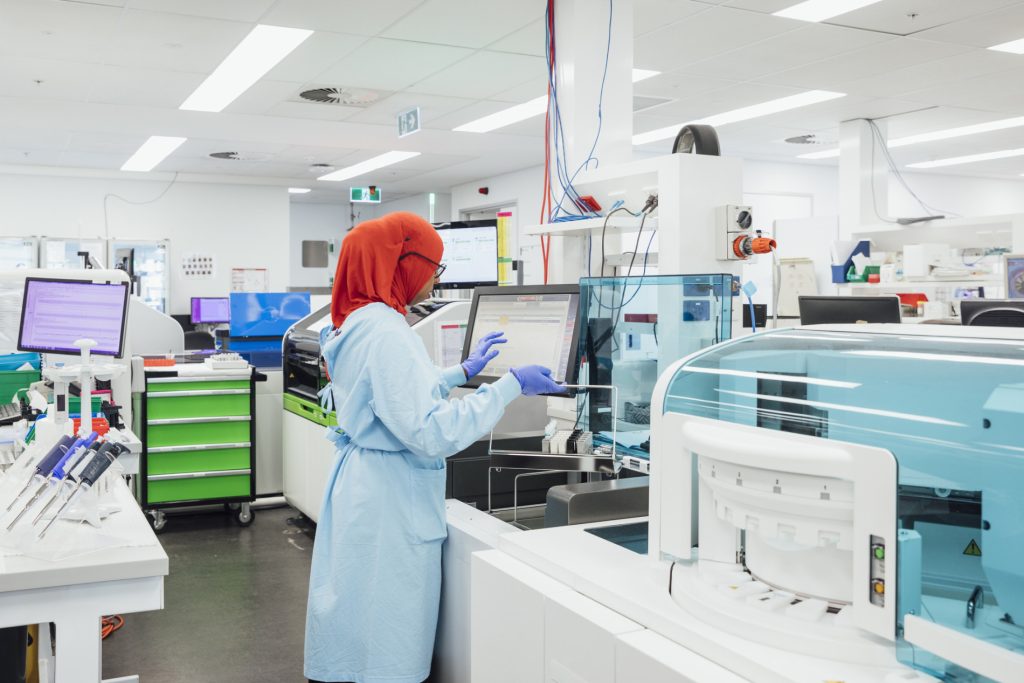What Does a Quality Assurance Officer Do? Career Pathways and Jobs in Australia
Shape the Standard of Excellence in Australian Manufacturing Quality Assurance (QA) Officers are essential to maintaining safety, compliance, and consistency across Australia’s manufacturing, pharmaceutical, and food production industries. They play a key role in ensuring products meet the highest regulatory and customer standards, protecting brand reputation and consumer confidence. At Fuse Recruitment, we connect skilled…
Shape the Standard of Excellence in Australian Manufacturing
Quality Assurance (QA) Officers are essential to maintaining safety, compliance, and consistency across Australia’s manufacturing, pharmaceutical, and food production industries. They play a key role in ensuring products meet the highest regulatory and customer standards, protecting brand reputation and consumer confidence.
At Fuse Recruitment, we connect skilled QA professionals with leading employers across Australia. Whether you’re an experienced Quality Officer or looking to step into a QA-focused career, we can help you find opportunities that align with your skills and ambition in this ever-evolving field.
What Does a Quality Assurance Officer Do?
A Quality Assurance Officer ensures that manufacturing processes and products adhere to internal standards and external regulatory requirements. They monitor systems, perform audits, and investigate non-conformances to prevent issues before they impact production or customers.
Typical responsibilities include:
- Developing and maintaining quality management systems (QMS) and documentation
- Conducting internal audits and inspections to verify compliance
- Investigating and reporting on deviations, corrective, and preventive actions (CAPA)
- Reviewing production and testing records for accuracy and traceability
- Liaising with production, engineering, and laboratory teams to resolve quality issues
- Training staff on quality procedures and continuous improvement initiatives
- Ensuring compliance with industry regulations such as ISO, HACCP, or GMP
QA Officers act as the link between operational teams and senior management, translating technical data into actionable improvements that enhance safety, efficiency, and product performance.
Common Work Environments
Quality Assurance Officers are employed across a wide variety of industries, including:
- Food and beverage manufacturing – monitoring product quality and HACCP compliance
- Pharmaceutical and healthcare – ensuring products meet GMP and TGA standards
- Chemical and industrial manufacturing – managing safety and process consistency
- Engineering and fabrication – verifying standards and quality control procedures
- Environmental and testing laboratories – auditing data integrity and safety systems
While QA roles are most commonly based in laboratory or manufacturing environments, some positions include site visits, supplier audits, or coordination between multiple production facilities.
Quality Assurance Officer Salaries in Australia
Salaries vary depending on experience, qualifications, and industry sector.
Recent data shows the average annual salary for a Quality Assurance Officer ranges from $75,000 to $100,000, with senior professionals and QA Managers earning more.
Industries such as pharmaceuticals, medical devices, and large-scale food manufacturing tend to offer higher salaries due to the complexity of compliance requirements.
Employment Outlook and Industry Demand
Quality Assurance professionals are in steady demand across Australia, as industries respond to increased regulation, global competition, and consumer expectations for safety and transparency.
Key factors driving demand include:
- Regulatory expansion – growth in compliance requirements from the TGA, FSANZ, and ISO standards bodies
- Domestic manufacturing growth – reshoring of food, pharmaceutical, and packaging production
- Export and supply chain requirements – global trade and certification standards driving new QA frameworks
- Technological integration – adoption of automated quality monitoring systems in advanced manufacturing
As companies place greater emphasis on traceability, sustainability, and risk management, QA Officers are becoming key contributors to operational success and customer trust.
Skills and Qualifications
To become a Quality Assurance Officer in Australia, candidates typically require a qualification in science, engineering, or manufacturing, along with a strong understanding of compliance systems.
Relevant qualifications include:
- Diploma or Bachelor of Science, Food Technology, or Engineering
- Certificate IV or Diploma in Quality Auditing (BSB50920)
- Graduate Certificate in Quality Management
- Training or certification in HACCP, GMP, ISO 9001, or internal auditing
Key skills and attributes include:
- Knowledge of QMS, CAPA, and continuous improvement processes
- Strong attention to detail and analytical skills
- Excellent communication and report-writing ability
- Proficiency with documentation systems, LIMS, or ERP software
- Collaboration across departments to ensure alignment between production and quality standards
Practical experience within manufacturing or testing environments is highly valued, particularly for candidates seeking to move from production or laboratory roles into quality-focused positions.
Career Progression and Pathways
Quality Assurance offers diverse career opportunities and progression pathways across industry sectors.
Typical career progression includes:
- Quality Assurance Officer – managing day-to-day quality checks and documentation
- Senior QA Officer / QA Specialist – leading audits, validations, and improvement projects
- Quality Systems Coordinator / Quality Engineer – developing and implementing quality systems
- QA Manager or Quality Lead – overseeing site-wide compliance and certification
- Operations or Technical Manager – integrating quality outcomes into strategic leadership roles
Professionals who pursue further study or certification in quality management often progress into leadership positions, overseeing entire compliance frameworks or corporate quality programs.
Industry Insights: What’s Driving QA Careers in Australia
Growing Compliance Expectations
Australian manufacturers are under increasing pressure to meet both domestic and international standards. This creates strong demand for QA professionals who can manage documentation, audits, and certification processes.
Automation and Data-Driven Quality
Advancements in automation and digital quality systems are improving efficiency, but also increasing the need for skilled QA staff who can interpret real-time data and respond to system alerts.
Sustainability and Traceability
With sustainability targets rising across food, manufacturing, and packaging sectors, QA teams are increasingly responsible for monitoring waste, energy use, and product lifecycle traceability.
Key Industries and Clients We Work With
Fuse Recruitment partners with clients across industries including:
- Food and beverage production
- Pharmaceutical and healthcare manufacturing
- Industrial, packaging, and plastics manufacturing
- Engineering and chemical production
- Environmental and testing services
We connect QA professionals with both large-scale and mid-sized employers who prioritise compliance, quality, and continuous improvement. Our recruitment expertise spans permanent placements, project contracts, and short-term QA assignments.
Case Study: Supporting a National Food Manufacturer’s Quality Expansion
Fuse Recruitment partnered with a major national food manufacturer headquartered in Brisbane to expand their Quality Assurance team during a product line upgrade.
The client required QA Officers with HACCP certification and experience in FMCG environments to manage daily audits, process validations, and supplier quality checks. Fuse identified and placed multiple candidates with relevant experience across food safety, lab testing, and quality systems management.
The placements helped the client achieve full compliance with new FSANZ standards and maintain seamless production during the commissioning phase of the new facility.
Why Work With Fuse Recruitment
Fuse Recruitment understands that quality professionals are vital to business success. We work closely with both candidates and clients to align career goals, compliance needs, and operational priorities.
We provide:
- Access to permanent and contract QA opportunities across Australia
- Guidance on career development, compliance certifications, and audits
- Trusted partnerships with industry-leading manufacturers
- Recruitment specialists who understand technical and regulatory environments
- Transparent communication and support throughout the hiring process
We help Quality Assurance Officers and Coordinators find roles where they can make a measurable impact on safety, quality, and business improvement.
Explore Related Roles
Looking for other quality or technical opportunities? Explore related roles across our Manufacturing & Operations discipline:
- Laboratory Technician Jobs
- Production Supervisor Jobs
- Process Technician Jobs
- Quality Control Analyst Jobs
- Food Technologist Jobs
FAQs About Quality Assurance Officer Jobs in Australia
What qualifications do I need to become a Quality Assurance Officer?
Most QA Officers hold a science, engineering, or food technology qualification, along with training in HACCP, GMP, or ISO systems.
Are QA Officers in demand?
Yes. QA professionals are in strong demand across food, pharmaceutical, and industrial sectors due to rising compliance expectations.
What’s the average salary for a QA Officer in Australia?
Between $75,000 and $100,000 per year, depending on experience and industry.
Can I move into QA from a production or lab role?
Absolutely. Many QA professionals start in production, lab, or technical support roles before transitioning into quality assurance positions.
What’s the difference between QA and QC?
Quality Assurance focuses on systems and prevention, while Quality Control is centred on testing and inspection of finished products.
Quality Assurance Officer Jobs
Ready to advance your quality career? Explore Quality Assurance Officer Jobs with Fuse Recruitment to find roles in manufacturing, food production, and pharmaceuticals across Australia.
We’ll help you connect with trusted employers, understand role expectations, and secure a position that supports your professional growth.
Looking to Hire Quality Assurance Professionals?
If you’re an employer seeking skilled QA Officers or quality management staff, Fuse Recruitment can help you find reliable professionals who ensure compliance and consistency.
Our specialist recruitment team has experience placing QA professionals in regulated and high-performance environments.
Contact Fuse Recruitment to discuss your hiring needs; we’ll deliver tailored recruitment solutions that strengthen your quality systems and support your operational goals.







